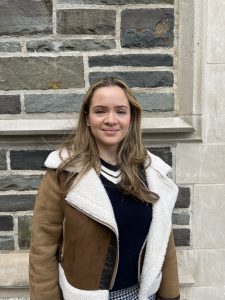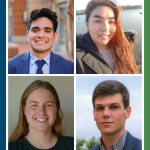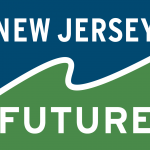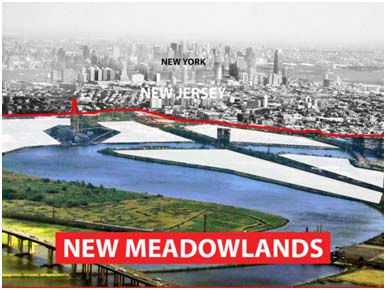New Jersey Future Blog
Meet New Jersey Future’s 2022 Summer Interns!
August 9th, 2022 by New Jersey Future staff
New Jersey Future’s internship program is developing the next generation of thinkers in smart growth. We offer graduate and undergraduate students the opportunity to assist us with various projects, including research, writing, communications, and administration. We appreciate their wide-ranging contributions! See a list of our previous interns and learn how to apply.
Here is what this summer’s interns worked on, in their own words.
Claire Brennan
Temple University
Field of Study: Journalism
I had the pleasure of working alongside Mo Kinberg and Chris Sturm on the Clean Water, Healthy Families, Good Jobs campaign, working alongside a coalition of environmental, business, and labor groups lobbying for Governor Murphy and the legislature to designate American Rescue Plan (ARP) funds to rehabilitate New Jersey’s outdated water infrastructure.
The beginning of my internship focused on gathering information on municipalities that suffered from combined sewer overflows (CSOs), lead-lined pipes, and drinking water utilities contaminated by forever chemicals called PFAS. This research was used to gauge which legislative districts had the widest array of infrastructure issues, and ultimately, as prep for meetings with the legislators of these districts.
Once much of the groundwork of the campaign was laid, I focused on communicating with endorsing members and alerting them of upcoming events and ways to help advance the campaign. I also reached out to legislators to inform them of issues surrounding New Jersey’s failing utilities, and the opportunity that ARP funds provided to begin fixing them.
While working on the campaign, I’ve garnered research skills, a wealth of knowledge on water infrastructure, and the confidence to communicate the importance of its vitality. I feel privileged to be a part of a campaign to keep people healthy, and to see our coalition’s values reflected in the legislature’s budget.
Aishwarya Devarajan
College of the Atlantic
Field of Study: Human Ecology, Policy
My name is Aishwarya Devarajan, a sophomore at the College of the Atlantic, and an intern with New Jersey Future (NJF). Through my time with NJF I have had the opportunity to interact with many local experts in multiple states to learn about the implementation of green and complete streets. Throughout these meetings, I have witnessed the relentless passion of advocates for complete and green streets, who care about people and the planet. As our streets get more crowded and more polluted, disparities within populations grow, decreasing accessibility within our communities. Complete and green streets are community hubs that bring accessibility, safety, sustainability, stormwater management, and economic benefits. The New Jersey Department of Transportation (NJDOT) has the ability to help these advocates create safe streets for communities to enjoy. NJDOT should incorporate green infrastructure and pedestrian safety measures into state-owned streets, encourage municipalities to implement best practices, and develop new set-aside grants for complete and green streets. New Jerseyans deserve clean air to breathe, safe and accessible streets to get around, and support for local businesses.
Margaux Petruska
Lehigh University
Field of Study: Environmental Policy
This spring, I have been grateful to work as a research intern on the Clean Water, Healthy Families, Good Jobs Campaign for New Jersey Future, under the supervision of Mo Kinberg. Through these few months, I have focused primarily on legislative district profiles and conducting research that was utilized as background knowledge for meetings about the campaign with legislators. I researched information about various NJ districts and learned about their drinking and wastewater infrastructure. I compiled summaries with highlights on problems within districts such as lead service lines, forever chemicals like PFAS, combined sewer overflows (CSOs), and contaminants. Additionally, I delved into data with Jyoti Venketraman separating updated LSLI data into their subsequent utilities. Having just begun my Master’s program, it was incredibly enriching to learn more about environmental and water policies through New Jersey Future while learning about it in my classes. I learned how to work outside of my comfort zone toward a specific goal, such as the campaign.
I am grateful for this opportunity to help me delve deeper into the field of advocacy and the progress it can make, and I hope to continue work as important as this organization does in the future.
Sasha Weber
Barnard College
Field of Study: Urban Studies
My name is Sasha Weber and I’m a senior at Barnard College, where I’m an Urban Studies major with a concentration in Environment and Sustainability. This semester I have been working on the Mainstreaming Green Infrastructure team. Since March 2, 2021, NJ municipalities have been required to utilize green infrastructure as a stormwater management technique on all new public and private developments. My role has been to research municipalities’ updated stormwater ordinances and determine which ones have gone above and beyond New Jersey Department of Environmental Protection’s requirements to protect communities from flooding and pollution. In my research, I have interviewed representatives from several municipalities to learn more about how they developed their stormwater ordinances. I have also explored case studies highlighting these new requirements in action. I have enjoyed learning about how diverse municipalities have used their resources and considerations of ecological conditions to create these new ordinances and I am excited for the future of green infrastructure as a tool for flood and pollution prevention, urban heat reduction, and ecological resilience.
Isabel Yip
Princeton University
Field of Study: English
Through the Princeton Recognizing Inequities and Standing for Equality (RISE) program, I worked with New Jersey Future on the Geography of Inequality project, conducting qualitative analysis by interviewing key figures in New Jersey towns about economic and racial integration. My research focused on affordable housing, zoning, the use of space to bring people together, and the importance of community relationships in places throughout New Jersey. I spoke with mayors, the leaders of community groups, council members, and city planning officials about how New Jersey towns work towards integration and maintain their diverse identities. With New Jersey Future’s director of research, Tim Evans, I created a report compiling my interviews with New Jersey leaders and research into the town’s history, which documented former hindrances to integration like formerly redlined districts, as well as developments like inclusionary housing ordinances. The interviews and research I conducted resulted in a series of recommendations for other places in New Jersey in order for them to become more stably diverse and integrated. I am thankful to New Jersey Future, the Princeton RISE program, the community leaders throughout New Jersey who gave me their insight into integration, and to my supervisor Tim Evans, who heightened my understanding of housing in New Jersey and of how the use of space can contribute to socioeconomic inequality.
Related Posts
Tags: intern, interns, internship, internships, new jersey future interns, summer interns
















